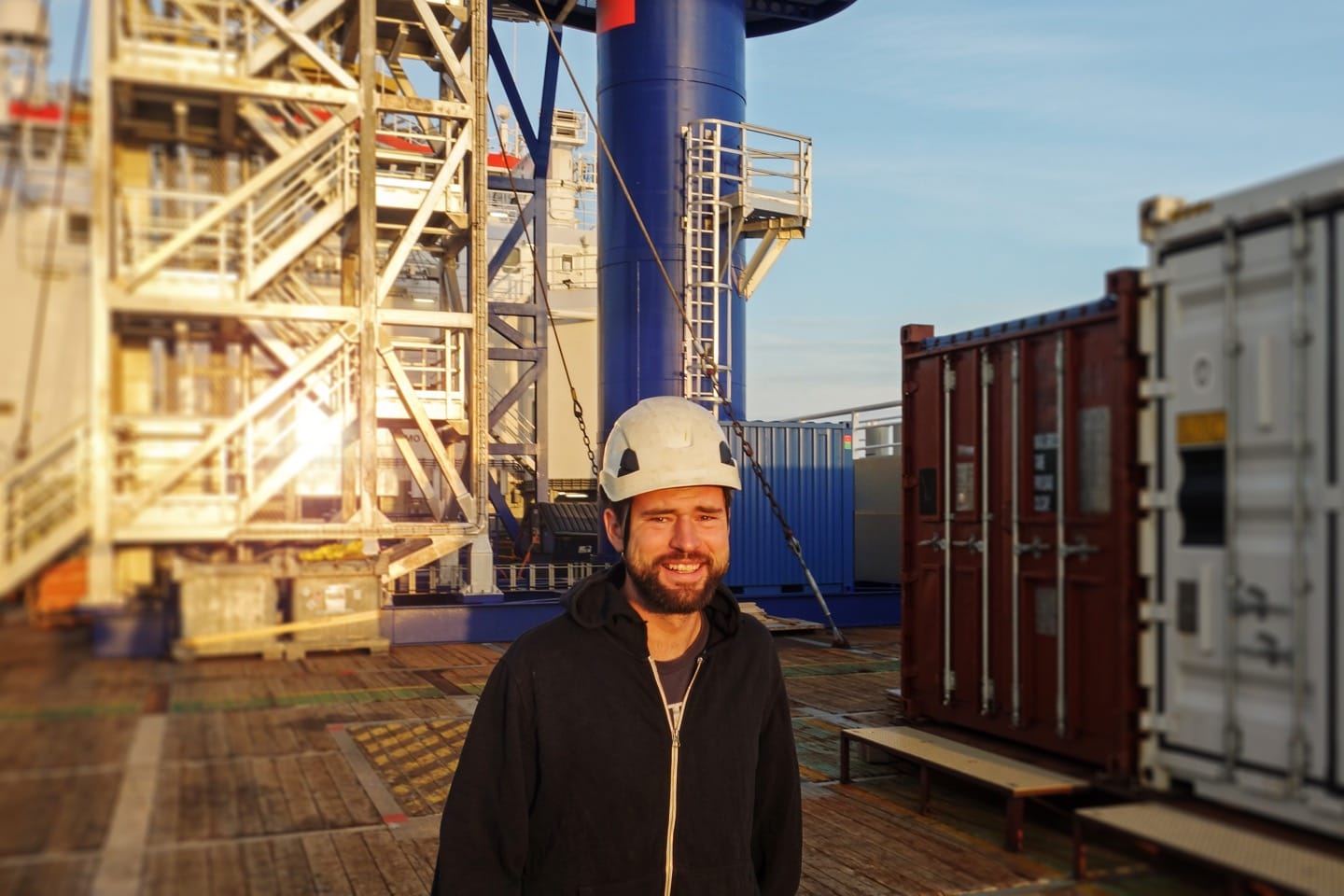Topics include
- Nuclear Safety and Compliance
- Leading a Future Workforce
- Regulation, Codes and Standards for Nuclear Science and Technology
- Project Management
Lead the future of Australia’s nuclear workforce. Study 100% online and gain the leadership, management and compliance skills to shape a safe, capable and sustainable nuclear sector.
This course is not available to International Students
Why study the Graduate Certificate of Nuclear Workforce and Governance at Flinders?
Build the skills to lead, manage and govern Australia’s emerging nuclear workforce. This fully online course develops your understanding of nuclear safety, regulation and project management while preparing you to design governance frameworks that ensure safe, ethical and compliant operations across defence, energy and industrial sectors.
Lead Australia’s nuclear capability
Develop strategic leadership and governance skills for managing people, compliance and operations in nuclear and high-technology industries.
Develop strategic leadership and governance skills for managing people, compliance and operations in nuclear and high-technology industries.
Study around your career
Balance work and study with a 100% online, flexible course designed for busy professionals.
Balance work and study with a 100% online, flexible course designed for busy professionals.
Learn from global experts
Gain insights from ANSTO professionals and leading Flinders academics with international experience in nuclear governance and workforce management.
Gain insights from ANSTO professionals and leading Flinders academics with international experience in nuclear governance and workforce management.
You’ll gain the knowledge and leadership capability to support the safe and effective development of Australia’s nuclear workforce. The course covers safety, compliance, governance, regulation and workforce management through a blend of technical and leadership-focused topics.

As Australia expands its nuclear capability, professionals with governance, compliance and leadership skills will be vital to shaping the sector’s future.
Graduates will be prepared for leadership roles that combine policy, management and technical oversight across government and industry.
You could be a

Average salary
$145,000*

Average salary
$130,000*

Average salary
$135,000*

Average salary
$125,000*

Average salary
$120,000*

Expected salary
$125,000*
You could be a

Average salary
$145,000*

Average salary
$130,000*

Average salary
$135,000*

Average salary
$125,000*

Average salary
$120,000*

Expected salary
$125,000*
*Typical salaries are drawn from a variety of sources, including Seek, Glassdoor and Indeed, and may vary. Please do your own research.
Award winning
Flinders is proud to have been acknowledged as the Best Future Skills Provider for 2024 and 2025 in the Defence & National Security Workforce Awards.


This course is shaped by leading experts from Flinders University and the Australian Nuclear Science and Technology Organisation (ANSTO).
You’ll gain access to real-world perspectives from professionals driving Australia’s nuclear capability and learn how safety, regulation and workforce governance are managed across defence, energy and industrial projects.
Flinders University is a future you can count on
No. 1 in Australia for postgraduate employment*.
Your skills will be in high demand, with 4,000-5,500 direct jobs expected to be created for South Austrlia through the AUKUS trilateral partnership**.
Flinders University is ranked No. 1 in Australia in Engineering & Technology for overall educational experience***.
Flexible online study - study anywhere, anytime and start, stop and restart your studies when life allows.
*QILT 2021 Graduate Outcomes Survey-longitudinal **Source: Australian Submarine Agency Press Release, October 2024
***The Good Universities Guide 2025 (postgraduate)
Meet your academics
Our incredible teaching and professional staff are experts in their fields and well-connected to industry.
Ingo is a physical chemist with expertise in nanotechnology and materials at the interface of biology, chemistry and nuclear science. His research focuses on membrane systems, nanoparticle design and material behaviour — all highly relevant to safety, containment and sensor technologies used in nuclear contexts.
With international research experience across Europe and Australia, Ingo leads work in the Flinders Institute for Nanoscale Science and Technology and contributes to Australia’s nuclear workforce development through education, collaboration and innovation. He brings deep technical insight to the course, helping professionals understand how advanced materials contribute to safety, monitoring and long-term reliability in nuclear environments.
Darryl is a physicist who explores how electrons and photons interact with atoms, molecules and materials. His research supports innovations in medical imaging, radiation therapies and nanotechnology.
With expertise in spectroscopy, quantum chemistry and advanced instrumentation, Darryl helps students understand the physics behind real-world technologies - from energy systems to materials at the atomic scale.
Admission may also be granted to applicants with at least three years of relevant professional experience, supported by:
No prior nuclear experience required. The course is suitable for professionals from both technical and non-technical backgrounds.
Participants must be Australian citizens and eligible for Australian Defence security clearance to work in certain defence roles.
Find the answers to some of our most frequently asked questions.
Professionals seeking to develop governance and leadership capability in the defence, energy, construction or policy sectors.
No. The course is designed for both technical and non-technical professionals, including managers, policy advisors and administrators.
It’s 100% online, allowing you to study flexibly while working full- or part-time.
Yes. Graduates will be equipped with nuclear governance knowledge valued in the defence sector. Eligibility for a Defence security clearance may be required.
Yes. The course is ideal for public sector professionals involved in regulation, safety, compliance or policy design.
Yes. Graduates can progress to the Graduate Diploma or Master of Nuclear Science and Technology.
Some courses have Commonwealth supported places (CSP) available for domestic students, which means the course is subsidised by the Commonwealth Government. A CSP student will pay this subsidised fee as their student contribution.
Alternatively, a full-fee-paying (FFP) place refers to a course that is not subsidised by the Commonwealth Government, or a course that has filled all available CSP places. A FFP student will pay this fee in its entirety.
Some courses may have both CSP and FFP places available.
Select your preferred course.
Check the entry requirements and your eligibility.
Confirm the key application and enrolment dates.
Apply and submit your application via Direct Entry.
Flinders Online courses are available for Australian or New Zealand citizens, Australian permanent residents, holders of Australian permanent humanitarian visas and Pacific Engagement visa holders.
International students in Australia who hold a student visa are not eligible to apply.
For further information regarding course eligibility, refer to the individual entry requirements for each course.
You are encouraged to apply as soon as possible and by no later than teaching commencement dates. If places fill, applications for your preferred start date may close without notice and you will be considered for the next available intake.
Please refer to the individual Flinders Online course for more information.
Applications are submitted directly with Flinders.
You can apply for up to three courses in order of preference in your application. More information is available in the Application Guide.
Normally, we will inform you of the outcome of your application within 3-5 working days after submission.
If further information is required, we will contact you via email with details on what is needed and how to provide it.
Yes, government-supported HECS-HELP and FEE-HELP loan area available to help eligible students pay for their higher education tuition fees.
Both loans are indexed to reflect changes in the cost of living but are otherwise interest free. HELP Loans must be repaid through the tax system once your income reaches a certain threshold, with payments increasing as your earnings rise.
CRICOS Provider: 00114A TEQSA Provider ID: PRV12097 TEQSA category: Australian University
CRICOS Provider: 00114A
TEQSA Provider ID: PRV12097
TEQSA category: Australian University
Flinders University uses cookies to ensure website functionality, personalisation and a variety of purposes as set out in its website privacy statement. This statement explains cookies and their use by Flinders.
If you consent to the use of our cookies then please click the button below:
If you do not consent to the use of all our cookies then please click the button below. Clicking this button will result in all cookies being rejected except for those that are required for essential functionality on our website.